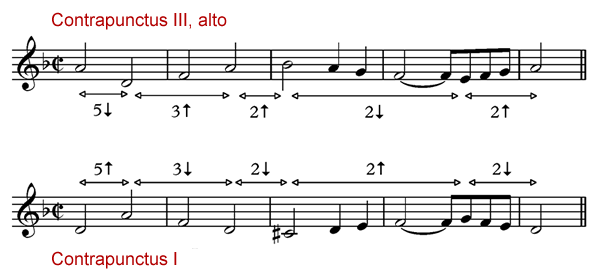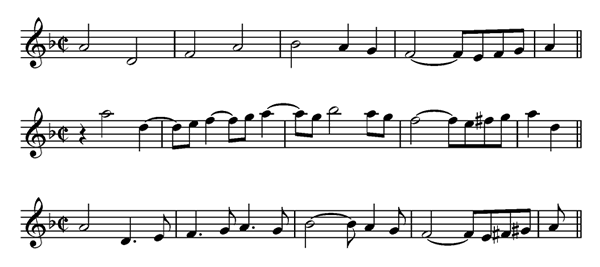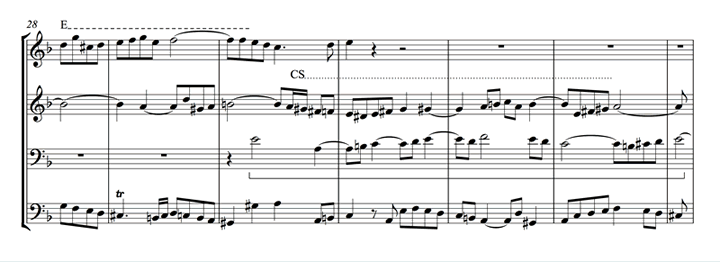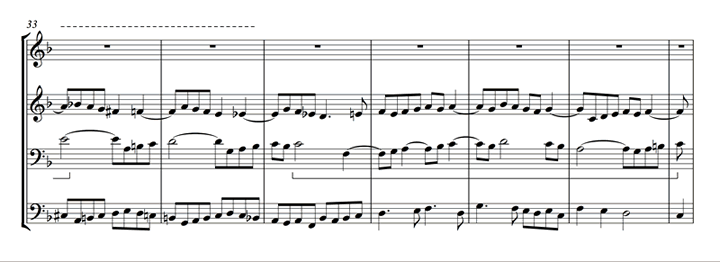Contrapunctus III from the Art of the Fugue
José Rodríguez Alvira
Structure of the Fugue
This illustration shows the structure of Contrapunctus III. Click any section for more information:
Exposition
The fugue starts with what appears to be an inverted answer of the original subject of the Art of the Fugue. In the following image we compare the alto from the Contrapunctus III (the second voice that should be considered the answer) with the original subject. This is the first time that the subject is transformed by inversion in the Art of the Fugue:

The exposition starts with the tenor followed by alto, soprano and bass. A chromatic countersubject accompanies each voice. The last eighth notes of the countersubject anticipates the last notes of the subject. Here is the exposition:
Chris Breemer, piano. Courtesy of Piano Society.
The subject uses several variations throughout the fugue:

Measures 19 to 27
A 4 measures episode based on fragments of the countersubject leads to the presentation of the subject by the soprano. This is the first variation of the subject. The countersubject appears in the alto:
Chris Breemer, piano. Courtesy of Piano Society.
Measures 28 to 35
After a 2 measures episode the subject appears on the tenor using the same variation as the previous entry. The countersubject plays in the alto:

Chris Breemer, piano. Courtesy of Piano Society.
Measures 33 to 39
A short episode precedes another presentation of the subject by the tenor. The chromatic countersubject does not appears this time. The alto and bass play a free counterpoint based on the last notes of the subject and countersubject:

Chris Breemer, piano. Courtesy of Piano Society.
Measures 39 to 47
The soprano plays again the subject in measure 43. The countersubject reappears in the alto:
Chris Breemer, piano. Courtesy of Piano Society.
Measures 47 to the end
One last episode leads us to the four last presentations of the subject by the bass, alto, soprano and tenor. In the case of the alto and soprano, the subject appears with a new variation similar to the subject that will be used in Contrapunctus V.
The fugue ends with a 4 measures coda:
Chris Breemer, piano. Courtesy of Piano Society.